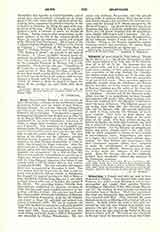

Sekanais (or more properly Tshe-‘keh-ne, “People on the Rocks”, i.e., the Rocky Mountains), a Dene tribe whose habitat is on both sides of the Rockies, from 52° to 57° 30’ N. lat. By language they are an eastern tribe, and it is not much more than 130 years since a portion of their congeners, having come into possession of firearms through the Canadian fur traders, made such reckless use of the same that the westernmost bands had to cross the mountains to get out of their reach. These quondam aggressors originally roamed along the Athabasca and Beaver Rivers, and they are today known under the name of Beavers, claiming now the valley of the Peace between Fort Dunvegan and a point some distance from L. Athabasca. Another split in the Sekanais ranks, which was due to an insignificant incident, brought into existence still another tribe, whose members were ultimately admitted into the Black feet Confederacy under the name of Sarcees. The Sekanais proper are not today more than 450; the Beavers, perhaps 550, and the Sarcees, 190. By natural disposition as much as from necessity the Sekanais are inveterate nomads. They have no fixed abodes, and therefore no villages, or even chiefs in the strict sense of the word. The best related among the fathers of families are their only headmen, and their role is restricted to directing the movements of their respective bands. Yet the Sekanais are scrupulously honest and moral, though theirs is the only Dene tribe in which polyandry is known to have existed in pre-missionary times. Superstitious and naive to a degree, they received the Gospel without questioning; but their habitat and environment, with their consequent nomadic habits, have conspired to make the establishment of permanent missions among them difficult. However, most of them are today under the influence of the Catholic priest. Even the Beavers, who are less religiously inclined, have steadfastly resisted the advances of the Protestant ministers.
A. G. MORICE

